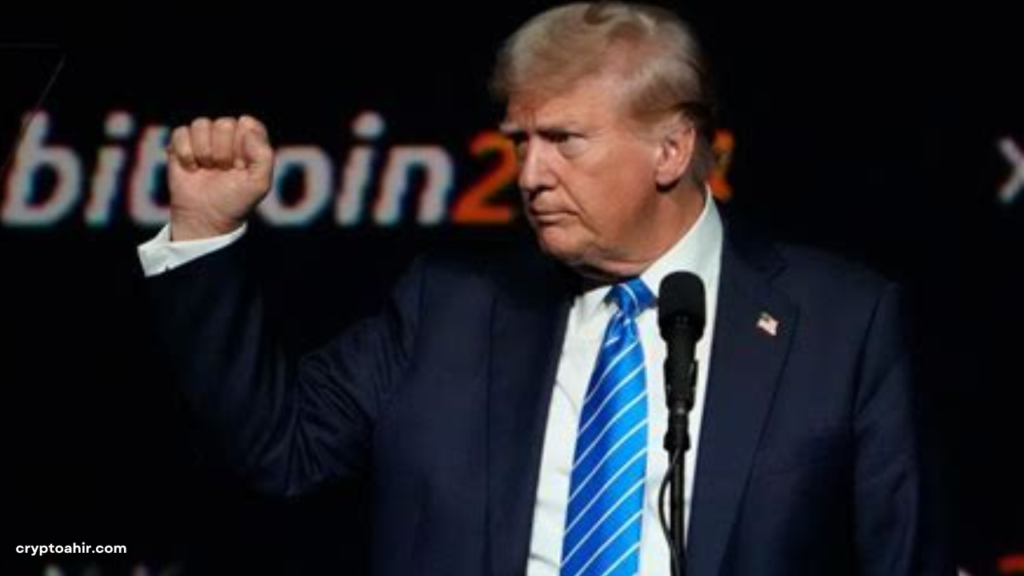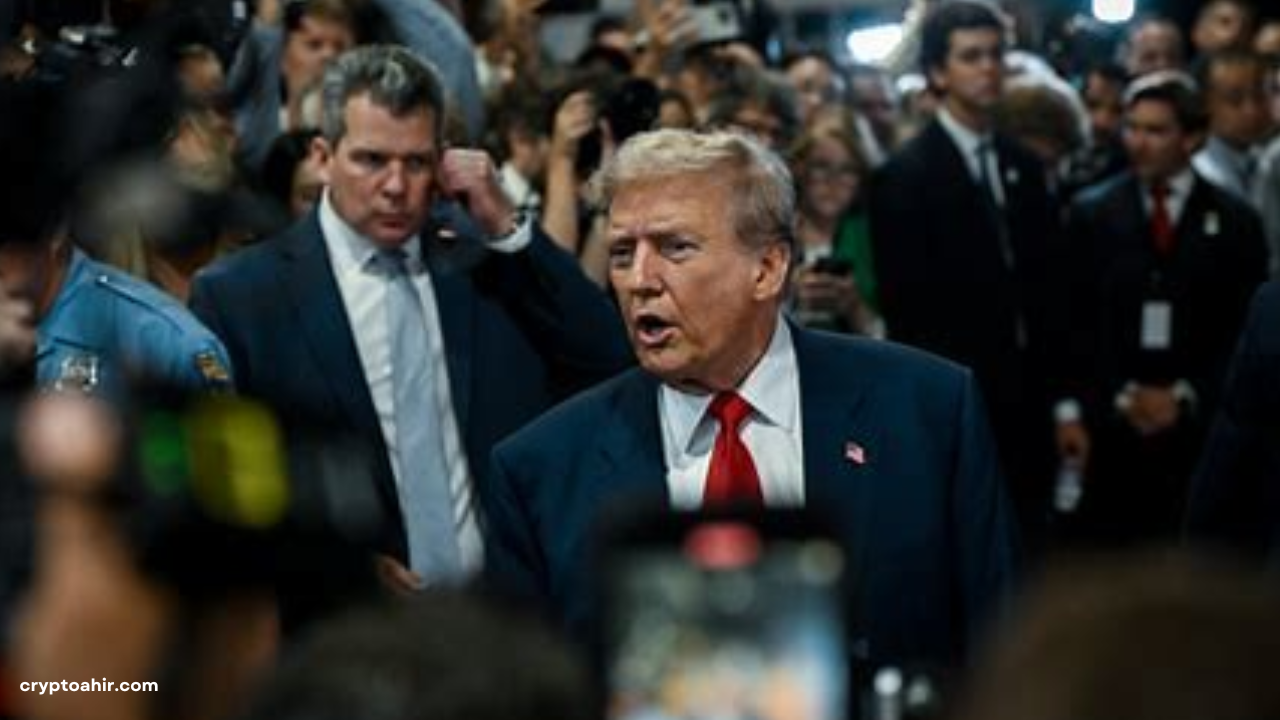To take advantage of the increasing demand for influence in Washington’s rapidly rising cryptocurrency and artificial intelligence industries, a group of seasoned attorneys with connections to President Donald Trump’s previous court battles have opened a business a short distance from the White House.
Founded by former Trump lawyer Jim Trusty and attorney Jeff Ifrah, NexusOne Consulting is a lobbying business that debuted this week with the intention of assisting up-and-coming internet firms in navigating and forming a rapidly changing regulatory environment.
One of Trump’s previous attorneys at Ifrah Law, Trusty, said, “NexusOne was launched to give the crypto, AI, and other emerging tech industries a seat at the table.”
Trusty also defended Trump in the early stages of his federal criminal prosecutions in 2023.

Crypto and AI firms have significantly increased their Washington operations and political expenditures since Trump’s return to the White House.
According to Bloomberg, companies including Kraken, Uniswap, Jump Trading, and Riot Platforms are hiring former Capitol Hill workers and administration officials in order to gain influence in a regulatory climate that is beneficial to them.
Ifrah, who has long represented IT clients through his legal business, Ifrah PLLC, stated that “technology is outpacing policy, and that creates both opportunity and risk.”
“This is a once-in-a-lifetime chance to influence IT policy going forward. Our goal is to ensure that innovators impact policy rather than merely responding to it.
NexusOne claims that it wants to assist its customers by concentrating mostly on the executive branch. The Commerce Department, the White House Office of Science and Technology Policy’s digital policy officials, and the White House office of the crypto and AI czar are among its early lobbying goals.
Additionally, the company intends to interact with regulatory bodies including the Securities and Exchange Commission and the Federal Trade Commission in a selected manner.
Ifrah emphasized the firm’s concentration on the executive branch by saying, “At NexusOne, we’re not going to be primarily focused on Hill lobbying, but we have a team of folks that we sort of lean into for that.”
Ross Branson, a former senior Commerce Department official during Trump’s first term, is also a member of the firm’s executive team.
Prominent conservative and Trump-affiliated individuals, such as former Republican Governor of Oklahoma Mary Fallin, former Education Secretary William Bennett from the Reagan administration, and Wall Street financier Andrew Graves, who is a major donor to St. Jude Children’s Research Hospital through Curetivity, are on its advisory board.
Ifrah gave the Washington Examiner a list of some of NexusOne’s short-term policy objectives, many of which are consistent with Trump’s previously declared objectives in both Big Tech industries.
Building on initiatives currently in place in states like Texas, NexusOne intends to support the establishment of a federal strategic digital asset reserve in the cryptocurrency space.
By the end of the year, Ifrah added, “There’s interest in establishing the strategic reserve and looking at stablecoin — how this would work and who the players would be.”
on AI, NexusOne intends to advocate for stricter consumer disclosure laws on the use of AI in digital communications as well as new takedown procedures for AI-generated material that are akin to Section 230’s notice-and-takedown framework for internet platforms.
Ifrah stated, “It’s very much the data privacy angle,” and I believe that kind of legislation is likely to be temporary. By the end of the year, I would say.
During the 2024 election, political lobbying for Big Tech legislation reached a fever pitch. According to lobbying watchdog site FollowtheCrypto.org, the cryptocurrency sector spent over $133 million on the election and influenced about 100 races.
The Stargate project, a massive $500 billion private-sector endeavor to ensure U.S. supremacy in artificial intelligence, is one of the most ambitious tech ventures revealed during Trump’s second administration.
With the support of OpenAI, Oracle, SoftBank, and other companies, Stargate intends to construct a sizable AI supercomputing infrastructure in order to directly compete with China’s quickly growing IT industry.
In order to keep China from surpassing the US in technical and military innovation, Trump has framed the initiative as a national security necessity and warned that US leadership in AI is essential.






